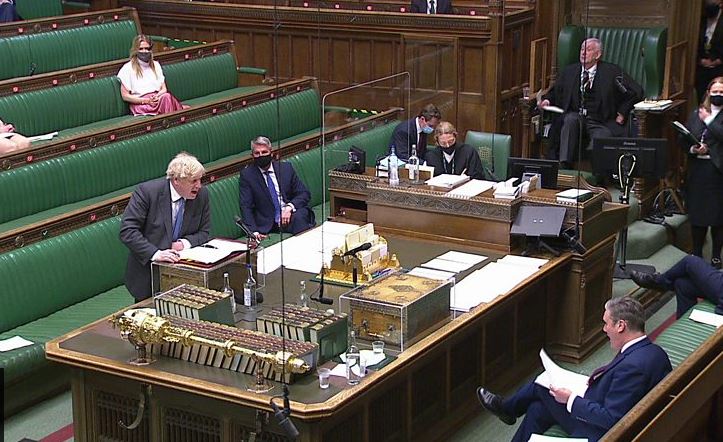One of the key sections in any InVision media training course is how to deal with hostile questions. I was reminded of this yesterday while watching an enraged Boris Johnson turn increasingly red and jab his finger in the direction of the Labour leader Sir Keir Starmer during PMQs.
Our advice is that you should always acknowledge a question, no matter how difficult or unwelcome, but you don’t always have to answer it. The technique is called bridging where you essentially go from the interview danger zone to a place of safety, i.e. talk about the things you want to talk about. To give you a political example, imagine the Home Secretary is being interviewed about the latest crime statistics that show a 10% rise in the murder rate. “Home Secretary, isn’t the rise in the murder rate a damning inditement on this government’s law and order policies?” Clearly the Home Secretary doesn’t want the interview to focus on this statistic but it can’t be ignored. “That increase is obviously of concern and that’s why we are talking to police forces across the country about how we can address the rise. However (this is the bridge), it’s important to look at these statistics as a whole. The burglary rate for instance has fallen by a dramatic 32%, almost a third, helping more of us sleep safely in our beds at night. I think that is an example of how this government’s tough law and order approach is having a real impact.”
As another example, let’s look at the world of investment finance. A particular fund has performed poorly and the media are on the attack. “Hasn’t this fund been a disaster for you?” Note how journalists today don’t so much ask questions as present you with a defined statement. “This one, specific fund has not delivered the returns we had hoped for but it’s really important (this is the bridge) for investors to remember that we always offer to build our portfolios around a basket of funds. If you look at our Asia Tech Fund for instance, we have consistently delivered returns well above industry benchmarks. The same goes for our ESG focussed fund which has been our biggest investment success story for the past five years.”
The trouble for Boris Johnson is that the question: “Who initially paid for the renovation of your flat?” is the real life equivalent of the media training cliché question: “When did you stop beating your wife?” This is traditionally presented as an almost impossible question to answer. If the response is: “How dare you. I have never beaten my wife.” It offers up the immediate headline “Man denies beating wife.” Traditionally the “best” response suggested is “I never started” but you get the point.
The problem for the Prime Minister is that he doesn’t really have anything to bridge to. It’s painfully obvious that he didn’t initially pay the renovation bill, (if he had then surely he would have said so by now), so what can he do?
So, please take a note of the following and dig it up when Boris finally comes clean about all this. I modestly suggest it won’t be a million miles from what happens.
“When I moved into Downing St with my fiancée in July 2019, my political mind was totally focussed on delivering Brexit for this country. The people had voted for it and I was determined uphold their wishes. And I did. A few months later I was also fighting a General Election to secure this Conservative government a strong working majority in Parliament which again I successfully did. But Downing St isn’t just my political base, it’s the home that I share with Carrie, and of course our son, and we wanted to make some changes. While I was working 24/7 on Brexit and the election, I was also, as everyone knows, dealing with the emotional and financial implications of my divorce. While it was always my intention to fully cover any renovation costs in Downing St that went above the funds officially allocated, I didn’t at the time have the funds readily available. At that point a donor kindly offered to cover the costs until I was in a position to repay them. With hindsight, every single one of us would probably have done something in their past differently and in this case perhaps I should have put the decoration work on hold.
After Brexit and the election, I’ve led the country through the biggest public health challenge we’ve faced in more than a century. I myself of course was a victim of the virus. I can promise you that as I was lying in an intensive care bed with a 50/50 chance of surviving, I wasn’t focussed on who was currently paying for my wallpaper.
So, with hindsight I should have found a different way to turn Downing St into the home I wanted for my partner and baby boy. Or I should have just put everything on hold until I could personally pay for it. Let me promise you however that all the costs have now been met by me. Let that be an end of the matter and let’s move on to rebuilding this country and its economy after the ravages of Covid-19.”
Or Boris could just tell the truth.


